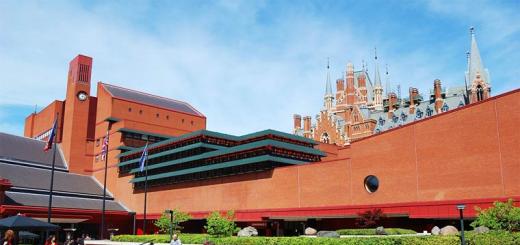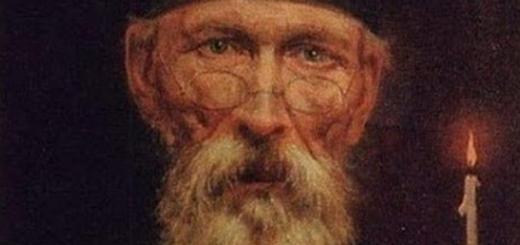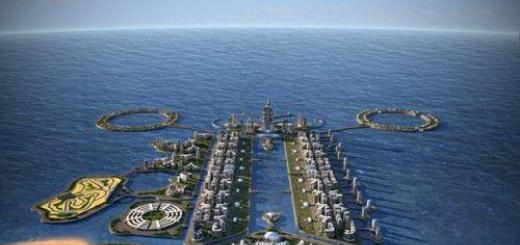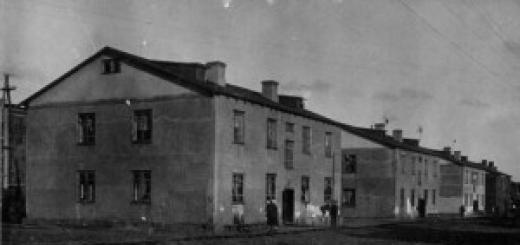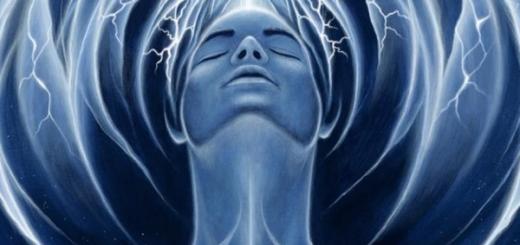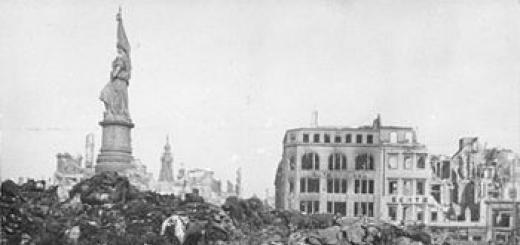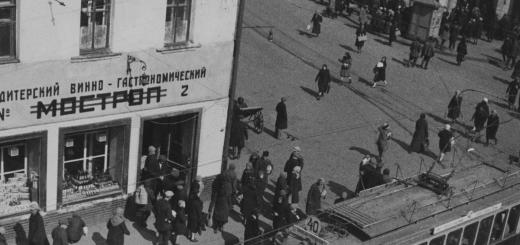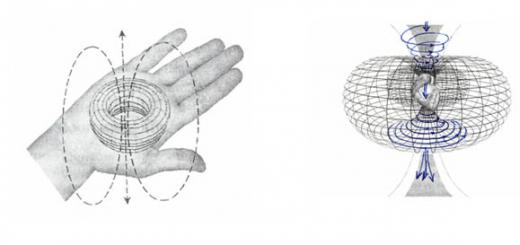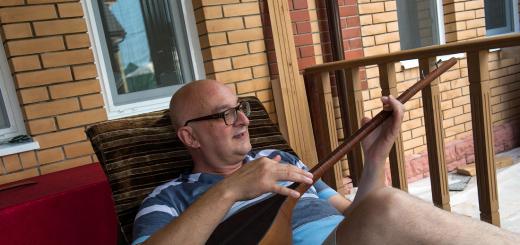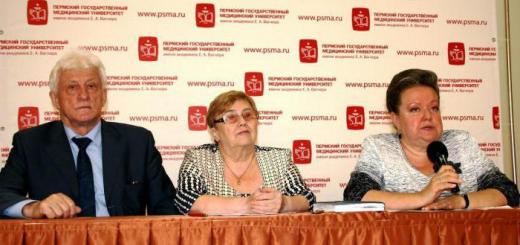
Childhood of N.A. Nekrasov. The childhood of N.A. Nekrasov passed in the family estate of the Nekrasovs, the village of Greshnevo. It was located near the Volga. the constant food of our childish curiosity." (N.A. Nekrasov)




“Reflections at the front door” Come out to the Volga: whose groan is heard Over the great Russian river? We call this groan a song That barge haulers are towing! .. Volga! Volga! .. In the spring of high water You do not flood the fields as much as our land overflowed with great sorrow of the people,

"Woe of old Naum" Volga true story Volga true story Other times, other pictures I foresee the beginning... Freed from the shackles The inexorable people Will mature, densely populate Coastal deserts; The science of water will deepen, Along their smooth plain Giant ships will run in countless crowds, And vigorous labor will be eternal Over the eternal river.

"On the Volga" In some pink dreams I forgot. Sleep and heat Already reigned over me. But suddenly I heard groans, And my eyes fell on the shore. Almost bending his head To the legs, entwined with twine, Shod in bast shoes, along the river Barge haulers crawled in a crowd, And it was unbearably wild And terribly clear in the silence Their measured funeral cry - And my heart trembled.


Conclusion Nekrasov is primarily a folk poet. And so the theme of the river, the landscape theme, in his works is closely intertwined with the theme of the oppressed, "groaning" Russian people. This river is the Volga, because it is a people's river, a river flowing through all of Russia, a river that shares its joys and sufferings with the people.

Head: Rondar Irina Nikolaevna,
city of Volgograd GAPOU "Volgograd technical school of railway transport and communications",
1st year student, ATP group 1-15 "Rolling stock repairman"
In the figurative perception of the essence of the Russian people, the Volga plays an exceptional and central role, it is the root and core of the entire Russian people, a figurative ideal. She is always animated, human qualities are attributed to her, and the ideal Russian person must correspond to the image of this river. In literature and art, the Volga is not found too often, but truly cult works are associated with its image. In the culture of the 19th and early 20th centuries, the most “popular” representatives of culture are associated with the Volga: N.A. Nekrasov, Maxim Gorky, F. I. Chaliapin.
The Volga is a typically flat river. From source to mouth, it descends only 256 meters. This is a very small slope compared to other great rivers in the world, which gives very great convenience for navigation.
“... they are slowly moving towards the banks of the Volga, - the left one, all drenched in the sun, spreads along to the edge of the sky, like a lush, green carpet, and the right waved its slopes, overgrown with forest, to the sky, and froze in stern peace. A broad-breasted river stretched majestically between them; noiselessly, solemnly and leisurely flow its waters ... "M. Gorky
The middle Volga is characterized by three main types of banks. On the right, the ancient banks, unflooded at any level of water, rise down to the river in steep slopes; sometimes, at a turn, such a bank protrudes into the Volga River, forming a cliff. On the left, extremely gentle, gradually rising to a low meadow floodplain, sandy shores predominate, alternating with "ravines - steep, almost sheer slopes, clayey, sandy-clayey; in some places they reach a considerable height." noiselessly, solemnly and unhurriedly flow its waters; the mountain shore is reflected in them with a black shadow, and on the left side it is decorated with gold and green velvet sandy rims of shallows, wide meadows. " M. Gorky
Gorky's young glory waved its wings over the native Volga.
From here she flew to, with unusual speed, passing the boundaries of land and water, to turn into world glory. It was called a fairy tale - this miracle glory. And she was a fairy tale, because her lightning carried the amazing call of the writer - to make life beautiful.
With his appeal yesterday, an unknown artist turned to people who did not possess either wealth or power, to people deprived of any education, more often - illiterate, clogged with need, oppressed by work without measure and clearance. He called them to straighten up, he awakened the pride of man in them ...
Gorky raised his life from the lowlands of the people, which frightened the philistine, and flew over them like a bird - that was what amazed this particular philistine ...
From his youth, Gorky got to know the people of the revolution more and more deeply, among them - and future Marxists. He happened to study in circles of working youth, for whom the keys to the party underground were not always a secret. As a young man, going on foot across Russia in order to get to know her, Gorky went on the historical road of our country - on the road of a revolutionary.
“I came into life to disagree” - the motto of youth will sound. With what? With a cruel wrong life, which rarely, very rarely can give a person moments of happiness and joy, such as, for example, sailing along the Volga with good people, admiring the grandmother's gambling dance, plunging into the wonderful world of a book. Later there will be disagreement with the motives of death, decay, despondency in Russian decadence, with the aesthetics of critical realism, with its hero, incapable of a bright deed, a feat. Gorky is convinced: "In order for a person to become better, he needs to be shown how he should be"; “the time has come for the need for the heroic” (from letters to A.P. Chekhov).
"Man is created by his resistance to the environment," wrote Gorky many years later. This resistance to the surrounding selfish and cruel world, the unwillingness to live the way they live around, early determined the character of the future writer.
The world of selfish, bestial relations between people was opposed by the world of beauty - the beautiful Volga, sung in songs, the river of rebels.
Music has entered Alyosha's life since childhood. In the Kashirins' house they sang old songs, middle-class romances, Alexei's uncle was a good guitarist, and his cousin sang in the church choir.
The grandfather began to teach his grandson to read and write according to the Psalter and the Book of Hours*. His mother forced the boy to memorize poems, but soon Alyosha had "an invincible desire to alter, distort the poems, pick up other words for them." That's how poetry came about.
Having got on board a ship at the age of twelve, for a salary of two rubles a month, he worked from six in the morning until midnight in the smoke and noise of the kitchen. But sometimes he ran away to the stern and admired the shrinking heart of the immense, pacifying Volga. The greatness of this mighty river was destined to leave an imprint on Alexei for life. “Night,” he writes, “the moon shines brightly, running away from the steamer to the left, into the meadows. An old red-haired steamer, with a white stripe on the pipe, slowly and unevenly, slaps its plates on the silver water, dark shores quietly float towards it, casting shadows on the water, the windows of the huts glow red above them, the girls sing in the village - they dance in a round dance, - and the refrain “ai-luli” sounds like Hallelujah… I am almost moved to tears by the beauty of the night.”
But the interests of an inquisitive and inquisitive teenager were not limited to philistine, philistine reading matter. He loved and appreciated the book that taught and made you think - the works of Pushkin, Gogol, Balzac, Flaubert, Zola.
"... The lady brought out a small volume bound in blue morocco.
You'll love it, just don't mess it up!
These were Pushkin's poems. I read them all at once, seized by that greedy feeling that you experience when you get into an unprecedented beautiful place - you always strive to run around it at once. This is what happens after you walk for a long time over the moss hummocks of a swampy forest and suddenly a dry meadow opens up in front of you, all in flowers and the sun. For a minute you look at her enchanted, and then you happily run around all of it, and every touch of your foot on the soft herbs of the fertile land quietly pleases.
Books did not obscure life from Alexei, but changed it, made it brighter,
bigger, more interesting. “A book is a miracle for me,” Gorky wrote in 1926, and he carried this enthusiasm for the book through his whole life - from swimming to
Volga with Smury until the last days of his life.
Maxim Gorky wrote: "... the banks of the Volga are slowly moving towards, - the left one, all drenched in the sun, spreads along the edge of the sky, like a lush green carpet, and the right waved its slopes, overgrown with forest, towards the sky, and froze in stern peace ..." Apparently, it was not by chance that in the old days the Volga cities were located in such a way that on the right bank there were those who bore a male name - Yaroslavl, Saratov, Simbirsk, on the left - female - Kostroma, Kazan, Samara, Astrakhan.
The high ideal of the writer's personality, embodied in Karonin, became Gorky's ideal in the future. Karonin spoke about Russian literature, aroused in Alexei an interest in tramps (a number of Gorky's first stories are dedicated to them). Seriously ill, half-destitute, just returned from exile, he did not complain about his fate, he lived "all absorbed in the search for" truth - justice ".
Another writer Alexei met in Nizhny was VG Korolenko. Alexey took him the Song of the Old Oak, written in rhythmic prose. In this "huge" poem, he outlined his thoughts on the theory of evolution. "Song" - it did not reach us - Korolenko did not like it: he recommended writing something about the experience. Greatly distressed, Alexei did not pick up a pen for a long time. But one summer night, when he was admiring the Volga, Korolenko sat next to him.
What are you writing?
Not...
It's a pity and in vain ... I seriously think - it seems you have
capabilities.
Numerous meetings, long conversations with hundreds of people, an avalanche of various impressions turned out to be beyond the power of the writer, and for almost a month Gorky lives in a dacha in Kraskovo near Moscow - in a dense coniferous forest.
But here, as before, intense writing work, heated conversations. "He was cheerful and gave the impression of a man of about forty, living in the fullness of physical and spiritual strength. That's just a cough - deaf, hysterical, as if tearing his chest and therefore especially painful ..." - recalls the writer I. Zhiga.
Nature for poetry is, as it were, its second "I", a mirror in which one's own appearance is more clearly recognized. Whoever nature is for poetry: an ally or a rival, a mentor or a student, it is in relation to it that poetry realizes the full breadth and urgency of its presence in the world as a “second” nature, created, but just as unconditional and omnipresent as the first. Nature is not only the theme of poetry, but also its highest ideal,that great poetry which no longer fits into an individual style, goes beyond the scope of authorship, erases signatures, names and becomesthe flesh of the world. Recognize your relationship withsuch poetry is the greatest happiness and honor for any author.
Then, at the turn of two centuries, the world abruptly broke for the writer into friends and enemies. The reaction was firmly established in the opinion about the "harmfulness" of Gorky's works for the existing order.
The tsarist authorities sought out in Gorky's activity the punishability of every step. It is unthinkable, of course, to weigh how much spiritual strength was stolen from the writer by imprisonment in police stations, prisons, fortresses, under secret or overt supervision, in arrest houses or under house arrest. The fact that throughout the entire chain of persecution Gorky did not let the courage of his magic pen waver testifies to the greatness of the spirit of a true poet ...
August 20, 1929 Gorky again goes on a trip to the USSR. On a steamship"Karl Liebknecht" he sails along the Volga, familiar to him from childhood, examinesAstrakhan, Stalingrad, then Rostov-on-Don, state farm "Giant", Caucasiancoast of the Black Sea, Tiflis. In the flower beds, white flowers of tobacco have opened and smell. Behind the Moscow River, in the meadows, no fog is visible. Alexei Maksimovich, his mustache down, slowly walks to the place where heaps of brushwood are collected. Ignites the fire. He stands, frowning, looking at the dance of the fire - sparks are carried up through the trembling foliage, into the night. In his eyes, gray-blue, - great pleasure.
Standing between the blushing trunks, he may be remembering those - other fires, lit by him forty years ago * on the banks of the Volga. His bonfires lit up the outlines of a creeping revolutionary thunderstorm. The fires of his fires shied away viciously, night drunken ghosts - the age-old Russian philistinism. The alarm of his fires awakened the dormant forces of rebellion. Sparks rushed all over vast Russia, spread across the frontiers, disturbing the minds with the harbinger of great events, inevitable upheavals.
His intense attention to the interlocutor, sincerity, skillful advice and at the same time strictness and exactingness, adherence to principles, which never turned into a dull "elaboration", invariably endeared him, and everyone who left Malaya Nikitskaya took with him a particle of Gorky's thought, a particle of his talent, his spiritual warmth.
The one who spoke to him at least for a short time,
came out, full of strength, on the threshold.
This man was like the Volga,
inspiringly powerful and wide! -
writes the poet Pavel Zheleznov, one of those whom Gorky gave a start in life.
On August 11, the writer travels to Gorky, from where with friends and family
(daughter-in-law and granddaughters) travels along the Volga (he sailed along the Volga in the summer of 1934).
The writer wanted to admire the Volga for the last time, and those around him felt that he was saying goodbye to the river of childhood and youth. The trip was difficult for Gorky: he was tormented by heat and stuffiness, constant shaking from the too powerful machines of the newly built steamship "Maxim Gorky" ("It would be possible without it," the writer grumbled when he saw his name on the ship).
Gorky talked with the party and Soviet leaders of the cities, past which the steamer sailed, talked about his youth, about the life of the Volga in those years, listened to the latest Chaliapin records, recently brought
Ekaterina Pavlovna from Paris from the great singer.
"Everywhere along the banks of the rivers, in the cities, the tireless work of building a new world is going on, arousing joy and pride," Gorky summed up his impressions of the trip in a letter to R. Rolland.
A.N. himself made a special contribution to the development of Russian folklore. Ostrovsky 1 . The playwright goes to the upper reaches of the Volga to collect detailed and extensive material about the life, occupations, economic situation of the fishing activities of the population in accordance with the program of the Naval Ministry. He had to get acquainted with the ethnographic features of the life of the coastal inhabitants of the Volga, notice the characterological details and features of their life, identify the ethnographic type of a Russian person (physical appearance, condition) due to local and life social circumstances that sharply distinguish them from other inhabitants engaged in fishing and shipping. Ostrovsky studied specific ethnographic facts, had to give a description of dwellings, crafts, ships and various navigational tools and means, indicating their names and even depicting them in drawings; it was necessary to study the mores, customs, habits, features of speech, sayings, the nature of his worldview. A deep comprehensive study of the people and their way of life answered the aspirations of the playwright himself to get closer to him.
During the expedition (from April to August 1856 and from the beginning of May to August 1857), Ostrovsky also collected significant materials, and by December 1857 several articles had been written for the journal "Sea Collection", one of which was "Journey along the Volga from origins to Nizhny Novgorod" - was published.
"Journey" is a kind of travel ethnographic essay with all its features. The essay is factual, statistical in nature. It is replete with ethnographic signs of the area, features of the material life of the people, historical data, figures, descriptions of cultural and architectural monuments, inclusions of phraseologically diverse elements of folk speech, peasant proverbs and sayings etymology, transmission of anecdotes common among the people, description of customs, beliefs, etc.
The description of the local ethnographic landscape, the appeal to pictures of nature and the writer's own reflections give him artistic originality.
Travel notes open with entries about the stay in Tver dated April 1856. "I arrived in Tver even before the opening of navigation. It was on holy week, the weather was lovely. Crowds of people in holiday dresses were walking along the embankment; the Volga was in full flood ..." 2 . Ostrovsky notes the poverty of the industrial class and the insignificance of wages and revenues, cites specific facts, as is customary in ethnographic essays, characterizes the main trade of the "poor Tver philistines" - transportation across the Volga, writes about their meager income ("between 15 and 20 kopecks of silver in day per person"), about their exclusively seasonal work. The writer tells about blacksmithing in winter: forging nails, building Baroque accessories and other small items. The work is exhausting and unprofitable, notes Ostrovsky; workers sleep no more than three hours a day and produce no more than fifty kopecks a week. Their poverty is also emphasized by the food they eat: the most delicious food that they dream of is fried onions in hemp oil. Meat is not seen almost all year round. Describes Ostrovsky and women's craft, almost the only one in Tver - knitting simple stockings in one needle from the coarsest wool. Their wages are also negligible. Poor people, the playwright notes, are engaged in tedious and unprofitable work: transportation, blacksmithing, knitting woolen stockings. In the Tver region there are many ready-made hands and little work.
Ostrovsky's field of vision also includes navigation along the Volga with its tributaries. He writes about the composition of caravans, about typical ships and the workers serving them - pilots, rootmen, horse breeders, mostly peasants from villages, and sometimes from the same family. Peasants work as a family trade (father is a horse breeder, son is a pilot). The writer gives actual estimates of their work. The ethnographer does not pass by the witty anecdotes that go along the Volga, accompanying the work of the pilot. A pilot in his “senior position” has the right to scold his subordinates, but how can you scold a close relative (father), and sometimes it’s impossible not to scold? The pilot acts in the following original way: he first shouts at the groom: "Hey you, fur coat!" Yes, and then he scolds his fur coat. And it's not insulting, and the due is not missed. Ostrovsky notes that the pilot is more honest and moral than all other ship workers 3 .
Ostrovsky left a description of the village of Gorodnya. His observations record the historical and ethnographic relationship with the present. "On the right, high and steep bank of the Volga, 30 versts below Tver, along the Moscow road, lies the village of Gorodnya. Before, before the Lithuanian ruin, it was a city and was called Vertyazin. There were three churches in it: one stone, the former cathedral, built in the 13th century in the name of the Nativity of the Blessed Virgin Mary, it still exists ... - Our Church is so old, - the peasants told me in Gorodnya, - that it has already gone into the ground. - But it did not go into the ground, but below, under the vaults, a temple was built, on the walls of which are still visible ancient frescoes. In this temple, especially remarkable are the royal gates, probably of modern construction. Two other churches: in the name of the resurrection of Christ and the holy martyrs Boris and Gleb, were wooden, and only tombstones without any inscriptions" 4 .
Artistic elements in a factual, ethnographic essay introduce lyrical motifs, most often associated with a description of nature, landscape. “For a long time I admired the picturesque view from the steep bank from the church ... To the right and left, between the bushes, the bends and reaches of the Volga shone in some places; along the steep banks, the white stone churches of the villages could be seen far away. by the fact that the mother of Grand Duke Mikhail Yaroslavich was born in it" 5 . The antiquity of Edimonov is indeed confirmed by the monuments of ancient Russian literature, being the scene of the story about the Tver Otroch Monastery.
Traveling along the Volga, the writer notes the decline in the economic and social life of the population of Gorodnya and compares the present with its former state. The railroad deprived the village of all benefits. Before, stagecoaches thundered here, dashing troikas flew up to the post hotel; good gentlemen and merchants gave generously for vodka. The peasants, according to their occupations, were divided into three families: the keepers of inns, coachmen and fishermen. And everyone had benefits even with a surplus. Ostrovsky enters into a conversation with the coachman: “Yes, there was a time, but it has passed. We lived for our own pleasure. Now all our privilege has departed. I told him. - From a scythe and from a plow you will not be rich, but you will be a hunchback. - Yes, and before, tea, you were not rich, but only walked around enough? - That's for sure.
From conversations with peasants in inns, on the banks of the Volga, with coachmen, the economic situation of the peasants at the present moment and their way of life in the past emerges, their worldview, perception of life in sayings and proverbs is brought to the reader. The author gives information about the customs of the peasants of the village of Gorodnya, gleaned, acquired, as he writes, from the venerable priest Father Vasily. “From the customs,” notes Ostrovsky, “remarkable is the respect of the local and neighboring residents for Ilyin’s day. Starting from Trinity to Ilyin, they don’t work on Fridays, and Fridays are called Ilyin’s. Further along the banks of the Volga, they fast all week before Ilyin’s day and call Ilyin’s post” 7. Ostrovsky also mentions the legend, rooted in the popular consciousness, about the influence of the divine power of the icon and beliefs on the life of the peasants. In fires, houses adjacent to the burning building are bypassed with images.
Describing the rich village of Mednoye, Ostrovsky notes that pilots and horse breeders live in a special settlement. He also describes the Nikolskaya Fair: with festive goods, gingerbread, scarves and chintz, copper earrings, pewter rings and multi-colored ribbons. Modern and historical plans merge in the essay. Mentioning the past of old Torzhok, Ostrovsky refers to the first Novgorod Chronicle 8 .
Ostrovsky sees ethnographic differences in the costumes and customs of the inhabitants of Torzhok, as well as a special manner of behavior. So, girls enjoy perfect freedom. The way of life of married women is the opposite of that of girls; women do not enjoy any freedom and stay at home all the time. "The outfit of the girls - a fur coat or a sundress, muslin sleeves and a soul warmer, in which one floor is embroidered with gold, begins to be removed; a coat takes its place, and instead of a bandage with duckweeds (lift it from pearls), they cover their heads with a silk scarf. Coats ... are long and narrow with an interception at the waist; they are made of silk fabric of bright colors and are mostly blue and pink.
The essay ends with a description of the writer's long-suffering journey on a cart drawn by poor philistine horses from Torzhok to Ostashkov. “I sadly climbed into a dilapidated cart; the rain dispersed more and more, my driver speaks in some barely understandable dialect, and ahead of 130 miles of an unfamiliar, almost uninhabited country road, this will make anyone think about it ...” Describing his position, the playwright recalls the Russian folk tale about Ivan: "He rides all day until evening, he has nothing to eat," says the Russian fairy tale about Ivan Tsarevich; the same thing happened to me.
Traveling along the Volga, which brought the playwright closer to folk life and culture, understanding the life of the Volga people, the peasant type, was a beneficial source of his creative activity, "the best school for studying his people and reproducing it in artistic forms." The expedition predetermined the close ties of the writer with the outside world, the depth of his penetration into the life of the people. The impressions deposited in his artistic consciousness were embodied in his subsequent work. Folk poetic consciousness of the playwright, his moral humanistic ideals, which he sought in the aesthetics of folk poetry and on which he relied, grew out of folklore sources.
(Childhood of Valezhnikov)
1
.......................
.......................
Take your time, my faithful dog!
Why jump on my chest?
We still have time to shoot.
Are you surprised that I grew up
On the Volga: I've been standing for an hour
Motionless, frowning and silent.
I remembered my youth
10
And I want to give myself to her
Here on the loose. I look like
On a beggar: here is a poor house,
Here, maybe they would give a penny.
But here is another - richer: in it
Perhaps more will be served.
And the beggar by; meanwhile
In a rich house, a janitor is a rogue
Didn't give him anything.
Here is a house even more magnificent, but there
20
Almost got kicked in the neck!
And, as if on purpose, the whole village
Passed - no luck anywhere!
Empty, at least turn out the bag.
Then he came back
To a wretched hut - and glad
That the crust was thrown to him;
Her poor man is like a timid dog,
Take away from people
And gnaws ... Early neglected
30
I am what was at hand
And almost a child's foot
I stepped over my father's threshold.
They tried to keep me
My friends, my mother prayed,
My beloved forest babbled to me:
Believe me, there is no sweeter native heaven!
Nowhere to breathe freely
Native meadows, native fields,
And full of the same song
40
There was a talk of these lovely waves.
But I didn't believe in anything.
No, I said to that life,
Nothing bought peace
Disgusting to my heart...
Maybe not enough strength
Or my work was not needed,
But I killed life in vain,
And what I dared to dream
Now I'm ashamed to remember!
50
All the powers of my heart
Spent in a slow struggle
without questioning anything
From life to your neighbors and yourself,
I knock timidly at the door
Of my wretched youth:
Oh, my poor youth!
Forgive me, I have reconciled!
Do not remember my daring dreams,
With which, leaving the native land,
60
I mocked you!
Do not remember my stupid tears,
How many times have I cried
Struggling with your peace!
But kindly something
What to rest your heart on
I could send me! I'm tired,
I lost faith in myself
And only the memory of childhood days
Doesn't weigh on my soul...
2
70
I grew up, like many, in the wilderness,
On the banks of a big river
Where only sandpipers screamed,
The reeds rustled deafly,
Rows of flocks of white birds
Like statues of tombs
Sat importantly on the sand;
Mountains were seen in the distance
And the blue endless forest
Hiding the other side of heaven
80
Where, having finished the day's journey,
The sun goes to rest.
I did not know fear from a young age,
I considered people brothers,
And soon stopped
Be afraid of goblin and devils.
One day the nanny says:
"Don't run at night - the wolf is sitting
Behind our barn, and in the garden
Devils are walking on the pond!
90
And that very night I went into the garden.
Not that I'm happy as hell
And so I wanted to see them.
I'm going. Silence of the night
Full of vigilance
As if deliberately hushed up
The whole world of God - and watched
What a cheeky boy was up to!
And somehow I didn’t walk
In this all-seeing silence.
100
Shouldn't you return home?
And then how the devils attack
And drag with them into the pond,
And forced to live under water?
However, I didn't go back.
The moon plays over the pond,
And reflected on it
Row of coastal trees.
I stood on the shore
I listened - hell no gu-gu!
110
I went around the pond three times,
But the devil didn't come out, didn't come!
I looked between the branches of trees
And between the wide mugs,
What overgrown along the coast,
In the water: did he hide there?
You could tell by the horns.
There is no one! I went away
Holding back a step on purpose.
This night came to me as a gift,
120
But if a friend or an enemy
Sat down in a bush and screamed
Or even, frightened by me,
An owl soared overhead
I must have fallen dead!
So, curious, pressed
I am false fears in myself
And in that useless struggle
Lost a lot of power.
But, obtained since then,
130
The habit of not looking for support
She led me on my way
As long as born a slave
proud fate
Did not turn back into a slave!
3
Oh Volga! after many years
I brought you greetings again.
I'm not the same, but you are bright
And majestic, as she was.
All around is the same distance and expanse,
140
The same monastery is visible
On an island, among the sands,
And even the thrill of the old days
I felt in my soul
Hear the bells ring.
Everything is the same, the same ... just not
Killed forces, lived years ...
It's almost noon. Such a heat
That footprints burn in the sand
Fishing doze over the water,
150
Seated in tight rows;
Grasshoppers forge, from the meadows
The cry of quails is carried.
without breaking the silence
Lazy, slow wave
The bark moves like a river.
The clerk, a young guy,
Laughing for his companion
Runs across the deck; she is
Sweet, stout and red.
160
And I hear him shouting to her:
"Wait, naughty, already
I’ll catch up! .. ”Caught up, caught it, -
And kiss them sounded
Above the Volga is tasty and fresh.
Nobody kissed us like that!
Yes in toasty lips
At our urban ladies
And there are no sounds.
In some pink dreams
170
I forgot. Sleep and heat
Already reigned over me.
But suddenly I heard moans,
And my eyes fell on the shore.
Almost head down
To legs entwined with twine,
Shod in bast shoes, along the river
Barge haulers crawled in a crowd,
And was unbearably wild
And terribly clear in silence
180
Their measured funeral cry -
And my heart trembled.
O Volga!.. my cradle!
Has anyone loved you like me?
Alone, in the morning dawns,
When everything else in the world is sleeping
And the scarlet glitter barely slips
On dark blue waves
I ran to my native river.
I go to the aid of the fishermen,
190
I ride with them in a shuttle,
I wander around the islands with a gun.
Like a playing animal.
From the high cliff to the sand
I ride, then the river bank
I run throwing stones
And I sing a loud song
About my early daring ...
Then I was ready to think
That I will never leave
200
From these sandy shores.
And I wouldn't go anywhere
When would, about Volga! upon you
This howl was not heard!
A long time ago, at the same hour,
Hearing it for the first time
I was scared, stunned.
I wanted to know what he means -
And long by the river bank
Ran. Tired barge haulers
210
They brought a cauldron from the bark,
Sit down, make a fire
And led among themselves
A leisurely conversation.
"Someday we will get to the Lower? -
One said. - When to get
At least Ilya ... "- Maybe we'll come, -
Another, with a sickly face,
He answered. - Oh, attack!
When the shoulder heals
220
I would pull the strap like a bear,
And if by morning to die -
That would have been better...
He fell silent and lay down on his back.
I could not understand these words
But the one who said them
Gloomy, quiet and sick,
Since then, he has not left me!
He is now in front of me:
The rags of miserable poverty,
230
Exhausted Features
And, expressing reproach,
Calm and hopeless look ...
Hatless, pale, slightly alive,
Only late at night home
I returned. Who was here
I asked everyone for an answer
On what I saw and in a dream
About what they told me
I was delirious. The nanny was scared:
240
“Sit, dear, sit!
Don't go for a walk today!"
But I ran away to the Volga.
God knows what happened to me?
I did not recognize the native river:
Difficulty stepping on the sand
My leg: it's so deep;
No longer beckons to the islands
Their bright fresh grass
Coastal birds familiar cry
250
Sinister, piercing and wild,
And the voice of the same lovely waves
Full of other music!
Oh, bitterly, bitterly I sobbed,
When I stood that morning
On the bank of the native river,
And called her for the first time
A river of slavery and longing!..
What I was thinking at that time
Calling fellow children
260
What vows did I make -
Let it die in my soul
So that no one laughs!
But if you are a naive delirium,
Vows of youth
Why don't you forget?
And you caused a reproach
So devastatingly cruel?
4
Dull, gloomy hauler!
How I knew you as a child
270
This is how I see it now:
You sing the same song
All the same strap you carry
In the features of a tired face
All the same humility without end ...
.......................
.......................
The harsh environment is strong,
Where are the generations of people
Live and die without a trace
280
And without a lesson for children!
Your father groaned for forty years,
Wandering these shores
And before death did not know
What to command sons.
And, as he did not have a chance
You will come across a question:
The worse would be your fate,
When would you be less patient?
Like him, silently you will die,
290
Like him, you will disappear without a trace.
So swept up in sand
Your footprint on these shores
Where do you walk under the yoke,
No more beautiful than a prisoner in chains,
Saying hateful words
From the century the same: "one yes two!"
With a painful chorus of "oh!"
And shaking my head to the beat...
This song is known to every Russian person. One has only to utter the first words, as passers-by immediately pick them up, and in a moment the whole street sings the famous melody of past years.
But does everyone know from what "far" and how "long" the great Russian river flows. And why is she so big?
The Volga flows not quite from far away. It originates in the Tver region in the village of Volgoverkhovye, but it extends to Astrakhan itself, where it flows into the Caspian Sea. Its path lasts 3,530 km, which makes the river the longest in Europe.
Presidential bridge in Ulyanovsk. Photo: www.wikiwand.comIs it possible to imagine that over all this distance the Volga turns from a stream that you can step over into a wide river, the bridge over which reaches more than 5 km!
It is interesting:
Presidential Bridge - the total cost of building a bridge across the Volga River in Ulyanovsk in 2008 prices is 38.4 billion rubles. The total construction period of the bridge was 23 years, which exceeded the standard construction period by 14 years and led to an increase in the cost of the facility (with an average inflationary growth of 1 billion rubles a year) by 14 billion rubles.
“Can you cross the Volga?” - I always ask guests who come to the Tver region. The answers are different, but everyone's eyes light up, and then the question follows: "Where can I do this?". I myself crossed the Volga twice, but this action was always accompanied by some kind of mystery. Now I like to watch people who come to the source for the first time. They, like children, run to a tiny stream and, not believing their eyes, ask: “Is it really her?”. And then they merrily jump from shore to shore. Happiness. Yes, happiness lives here, which lies in simple things. It is located at the very source, at the source of the great Russian river.
Next is happiness flows through 15 subjects of the Russian Federation, capturing such cities as Tver, Yaroslavl, Nizhny Novgorod, Kazan, Ulyanovsk, Samara, Saratov, Volgograd, Astrakhan and others. And for every inhabitant of these cities, the Volga is a favorite river, a breadwinner. Songs were always composed about her, poets and writers sang about her, artists painted her at any time of the year.
The Volga fed and inspired our people for many centuries. How many centuries? While I was trying to understand the scientific material on geography and geodesy, I realized that the issue with the history of the origin of the Volga is a little deeper than I imagined. I won't go into details. One thing is important - the Paleo-Volga was formed 5 million years ago! What about the references to the river? The first of them belongs to Herodotus (5th century BC), then there are references to ancient Roman sources of the 2nd - 4th centuries. and, of course, the Volga is mentioned in the Old Russian work The Tale of Bygone Years, written by the chronicler Nester.
 Ancient map of the Volga river / Fra Mauro map (detail) - Volga and Caspian
Ancient map of the Volga river / Fra Mauro map (detail) - Volga and Caspian Of course, like any full-flowing river, the main function is transport. In the Middle Ages, the Volga trade route ran along the Volga, which connected Scandinavia with the countries of East Asia. The dawn of this trade route came in the 9th century. Under Ivan the Terrible, through traffic was opened along the river to its mouth, both for self-propelled rowboats and those driven by barge haulers. Everyone, of course, is familiar, so the idea of \u200b\u200bthis hard work does not need a description. In the early 1800s, steamships began to appear, which still ply the Volga.
 Ples. Photo: pliosvestnik.ru
Ples. Photo: pliosvestnik.ru Many famous people traveled along the Volga, described it, drew. One such person was Catherine the Great. The journey itself was called the "Volga Voyage" and lasted a little over a month from May 13 to June 16, 1767. It began in Tver and ended in Sinbirsk. During her stay in Kostroma, Catherine learned that the city does not have a coat of arms. The Empress ordered immediately to create a coat of arms for Kostroma: "Order in the Heraldry to make the city and county the Kostroma coat of arms, with which they intend to welcome them."
That emblem became the first officially approved emblem in Russia, and it depicted Catherine's Volga voyage - the ship on which the empress sailed along the Volga. Thus, the Great Russian River began to appear in heraldic symbolism.
I don’t know what other facts from the life of the river to cite so that there is no doubt about its greatness and significance, although, did anyone doubt it? And how can one question the beauty and power of the Russian river, which has become a symbol of the whole country.
O Volga!.. my cradle!
Has anyone loved you like me?
Nekrasov N.A.
The most sacred river in the world
Crystal waters queen, mother!
Karamzin N.M.
And I just can't live without the Volga.
How good raspberry early
Come and sit on the beach
And be silent near her silence.
Dementiev A.S.
1. For the first time, people heard the song "The Volga River Flows" in July 1962 in the Sunday radio broadcast of the All-Union Radio "Good morning!" performed by Mark Bernes, who was supposed to voice her in the movie "The Volga Flows", however, he refused this. As a result, Vladimir Troshin performs the song in the film.
2. Since 2008, Volga Day has been unofficially celebrated on May 20. Traditionally, environmental events are held to clean up the river. In the Tver region, at the end of May, the Volga procession begins, which begins with the illumination of the source of the Volga and then follows all the Volga cities of the Tver region.
3. Barge haulers are not only those who dragged the barge. This word can be called a person who has gone to work (cutting a house, laying stoves, etc.). In the USSR in 1929 barge hauling was banned. Now in the regulatory legal acts there is no ban on it.
4. The longest bridge across the Volga, the Presidential Bridge, was built in 2009 in Ulyanovsk. Its length is 5,825 meters. The Presidential Bridge was the longest bridge in Russia before the construction of the Crimean Bridge, which is 19 km long.
